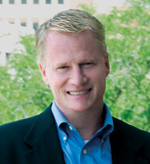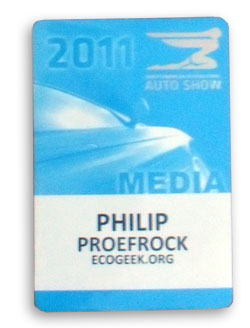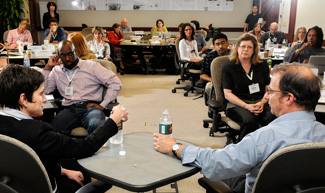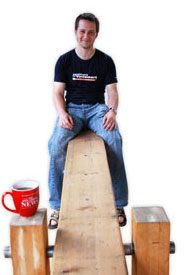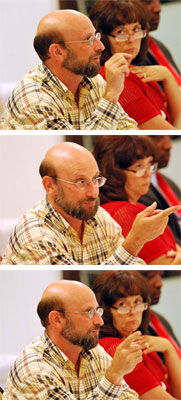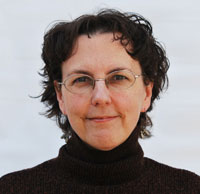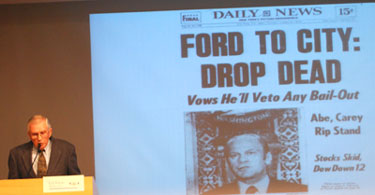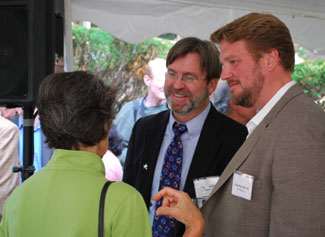Editor’s Note: The monthly milestone column, which appears on the second day of each month – the anniversary of The Ann Arbor Chronicle’s launch – is an opportunity for either the publisher or the editor of The Chronicle to touch base with readers on topics related to this publication.
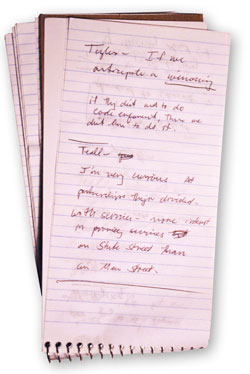
Rough notes for the first rough draft of Ann Arbor history.
In this month’s milestone message, I’m going to explain what we do here at The Ann Arbor Chronicle. And I’m going to do it in a way that is intended to inspire additional voluntary subscriptions to our publication.
About 47 years ago, in a speech delivered in London to correspondents for Newsweek magazine, Washington Post publisher Philip Graham called journalism the “first rough draft of history.” The contention that journalists are writing history – even just a first rough draft – is pretty high-minded talk. Writing any draft of history certainly sounds sexier than the sheer drudgery of taking notes through a six-hour city council meeting seated on hard pew-like benches and condensing that material into a few thousand words for Ann Arbor Chronicle readers.
That’s an aspect of the job Graham meant in the first, less famous part of the “rough draft” quote [emphasis added]: “So let us today drudge on about our inescapably impossible task of providing every week a first rough draft of history that will never really be completed about a world we can never really understand …”
I think that digital technology allows journalists the possibility of providing a far better first draft of history than was previously possible. It’s better in the sense that it can be more comprehensive, and more detailed than the drafts that were constrained by printed newspaper column inches.
But seriously. Why does Ann Arbor need someone to write down its history? Do we here at The Chronicle really imagine that 100 years from now anyone will care that some new parking meters got installed in front of the Old Town Tavern? Nope. I don’t. Not really. Well, maybe. Okay, no. Not, really.
Sure, in an unguarded moment, I’ll indulge in the reverie that Ann Arbor’s 2110 version of Laura Bien will be mining The Chronicle archives and writing – for some next-century information distribution system – an article called “The Man Who Loved Parking Meters.”
More useful than 100-year-old history, however, is the history of five years ago, a year ago, or even a month ago. Because it’s the things that were said and done one month ago or one year ago that matter for elected officials making policy decisions, and for voters making choices at the polls.
So this month’s milestone provides a couple of examples demonstrating that The Chronicle is a pretty decent source of recent local history – a better source than the recollections and conversations of our local political leaders. [Full Story]




